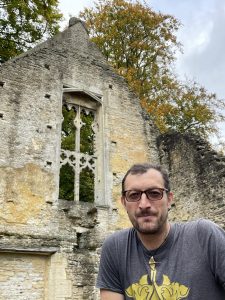 The Future of Personalised Healthy Ageing
The Future of Personalised Healthy Ageing
Join us for an event exploring the cutting edge of Longevity Medicine – where evidence-based science meets personalised care to help you live not just longer, but better.
Deborah Evans
Deborah Evans is a pharmacist and the owner of REMEDI HEALTH in Winchester.
She served three years on the English Pharmacy Board of the Royal Pharmaceutical Society (RPS) and was appointed a Fellow of the RPS in 2013, a Faculty Fellow in 2015 and a Fellow of the Royal Society for Public Health in 2016. She led the national, award-winning Healthy Living Pharmacy (HLP) pathfinder programme, which helped shape the direction of community pharmacy in England.
With a strong passion for women’s health, Deborah is an Independent Prescriber specialising in sexual and reproductive health, menopause care, weight management and travel medicine. Deborah has recently taken her passion for preventative health further and developed as a specialist in Longevity Medicine.
Deborah is married, has four children and three grandchildren, and lives in Winchester. She is passionate about health and wellbeing, and keeps active through working out, cycling, walking and yoga.
What the talk will explore
- What Longevity Medicine is — and how it differs from conventional care
- The risks to health and what we can do to reduce heart attacks, strokes, cancer, dementia and metabolic diseases such as diabetes
- The role of advanced diagnostic testing in revealing your unique ageing blueprint
- How we assess and support hormone balance, metabolic health, inflammation, cardiovascular risk and biological ageing markers
- Tools to enhance your healthspan (not just lifespan) – including activity, nutrition, supplements, hormone optimisation, weight management and lifestyle strategies
- Insights into sleep therapy, stress reduction and how to maintain mental sharpness
You can safely ignore this if you’ve read it before
Talks are usually on the 4th Wednesday of every month, at 7:00 for 7:30, at The Winchester Club in Winchester. Please take a look at the FAQs for more info.
Admission is £5 which also gives you an entry in the book raffle. We take cash and major cards (cards preferred).
The event is in two parts – the talk and then a Q&A after the interval. We encourage you to support the venue by indulging in the available drinks before and during the event.
You are also welcome to join us for a drink in the bar after the event.

 “Have you been naughty or nice?
“Have you been naughty or nice? From policing to infrastructure inspection and delivery, aerial drones are increasingly present in UK airspace – mobilised in civil, commercial and recreational roles.
From policing to infrastructure inspection and delivery, aerial drones are increasingly present in UK airspace – mobilised in civil, commercial and recreational roles. We’re all members of a very strange species. But where lots of human peculiarities – from art to warfare and beyond – have analogues across the animal kingdom, we stand alone as the only religious species.
We’re all members of a very strange species. But where lots of human peculiarities – from art to warfare and beyond – have analogues across the animal kingdom, we stand alone as the only religious species. Science has transformed the quality of human life. But Philosophers have sometimes struggled to define what makes science, science.
Science has transformed the quality of human life. But Philosophers have sometimes struggled to define what makes science, science. Hearing loss is the most prevalent sensory condition, with a large genetic component. In particular, Age-Related Hearing Loss is an ever-growing issue for a steadily ageing population; about 25% of those over 65 years of age suffer from it, and this doubles for every further 10 years of life.
Hearing loss is the most prevalent sensory condition, with a large genetic component. In particular, Age-Related Hearing Loss is an ever-growing issue for a steadily ageing population; about 25% of those over 65 years of age suffer from it, and this doubles for every further 10 years of life. What geology and archæology can tell us
What geology and archæology can tell us How the basic tools of scientific scepticism should be applied in the post-truth digital era
How the basic tools of scientific scepticism should be applied in the post-truth digital era
 This talk is offered as an antidote to the doom and gloom that many of us can feel about the climate and ecological emergency, and the terrifying reality of natural disasters we either experience ourselves, or watch live on the news.
This talk is offered as an antidote to the doom and gloom that many of us can feel about the climate and ecological emergency, and the terrifying reality of natural disasters we either experience ourselves, or watch live on the news.